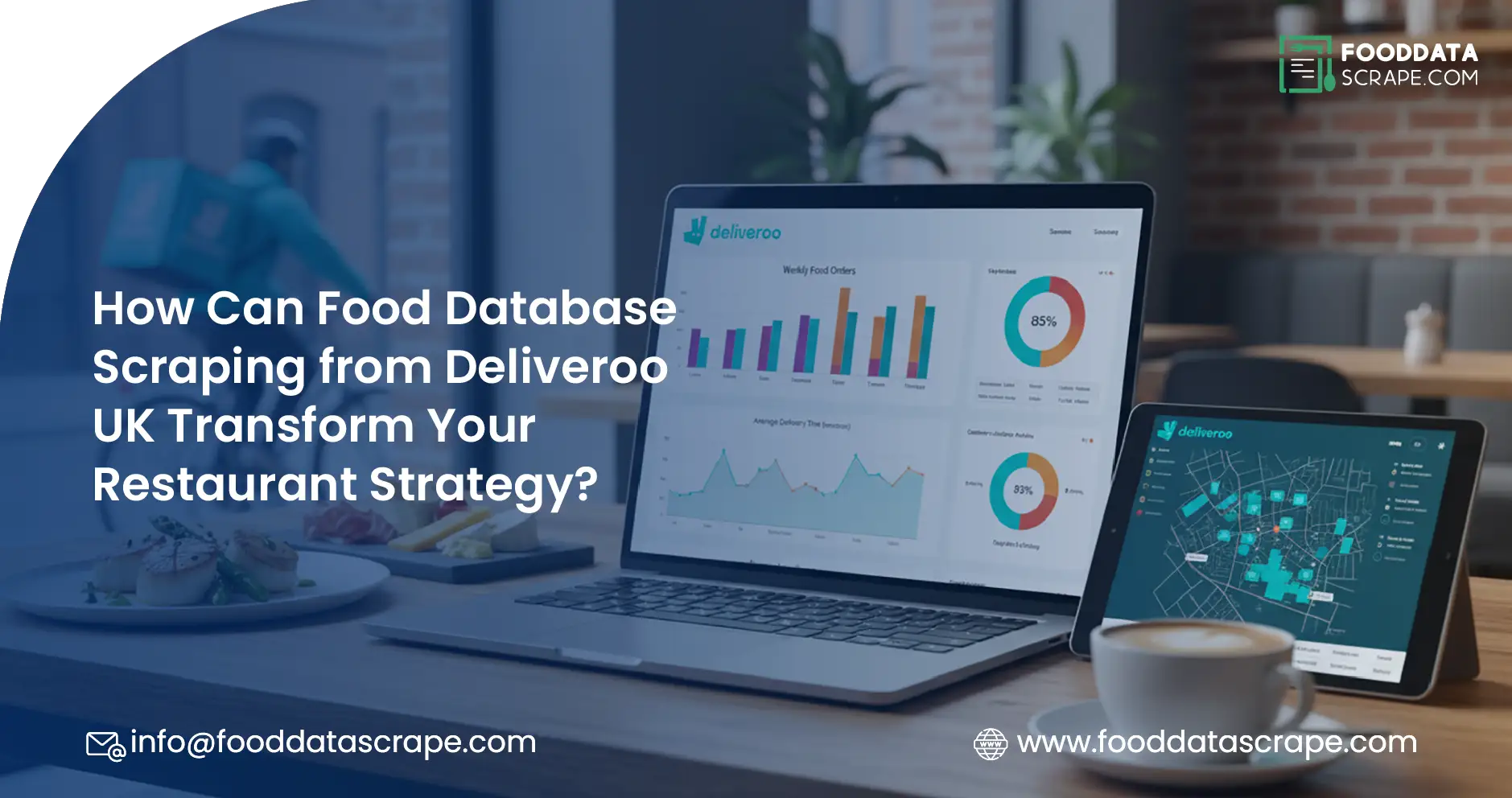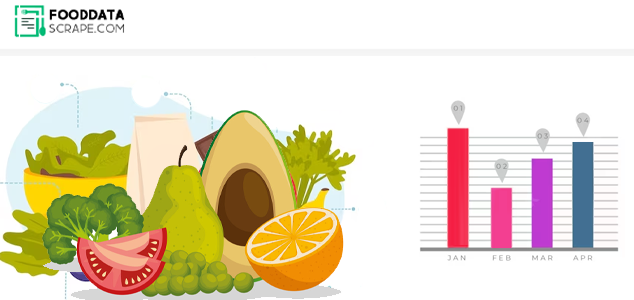Introduction
In the fast-paced and competitive landscape of food delivery, having access to structured, reliable, and comprehensive data is no longer a luxury—it has become a necessity. As online food orders continue to surge across the UK, businesses, market researchers, and analysts are increasingly seeking accurate information to understand customer preferences, evaluate restaurant performance, and track pricing trends effectively. Food Database Scraping from Deliveroo UK provides a robust solution for acquiring detailed datasets from one of the country’s leading food delivery platforms. By utilizing this data, restaurants and food businesses can gain critical insights that allow them to optimize operations, improve customer satisfaction, and make data-driven strategic decisions. Moreover, companies can Extract Food Menu Data from Deliveroo UK to stay updated on new menu items, pricing adjustments, and popular dishes. This proactive approach enables restaurants, competitors, and analysts to monitor market trends in real time, refine their offerings, and develop actionable strategies that drive growth.
Understanding the Need for Food Data
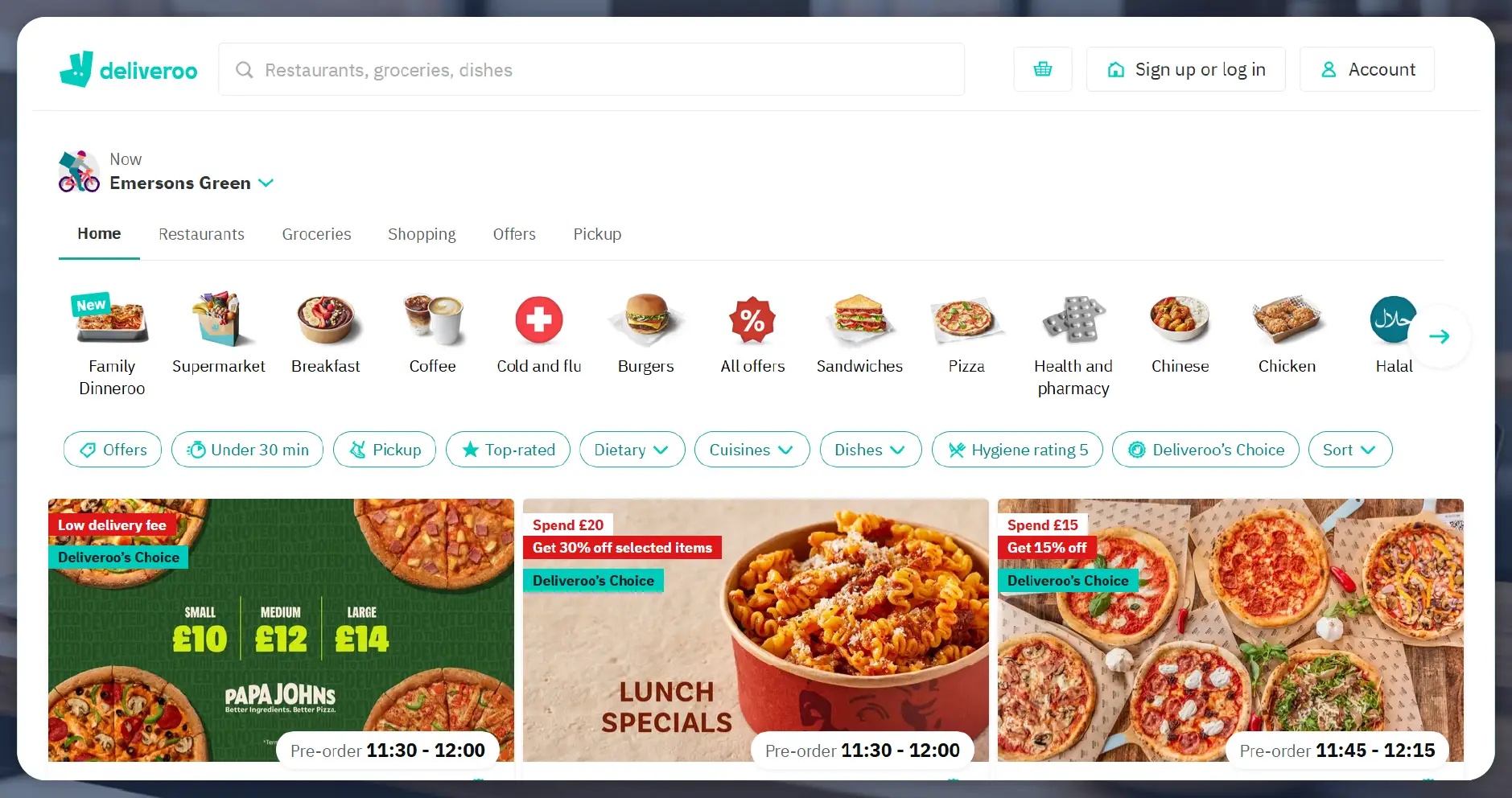
The food delivery ecosystem is complex, involving multiple stakeholders such as restaurants, delivery platforms, and consumers. Each of these players generates a wealth of data, ranging from menu items and prices to customer reviews and order frequency. Collecting and analyzing this data can provide deep insights into market behavior, helping businesses fine-tune their offerings.
One of the most critical aspects of market intelligence is Food Dishes & Prices Data Extraction from Deliveroo UK. Tracking dish popularity and price fluctuations enables businesses to identify profitable items, understand demand patterns, and optimize menu strategies.
Why Businesses Need Food Data Scraping?
- Market Research and Analysis: Understanding trends in consumer preferences and competitor pricing is vital for strategic planning.
- Operational Optimization: Data helps in identifying peak order times, popular dishes, and operational inefficiencies.
- Personalized Marketing: Restaurants can use insights to tailor promotions and offers for different customer segments.
- Trend Prediction: With historical data, businesses can anticipate seasonal shifts and menu trends.
- Competitive Benchmarking: Compare pricing, menu variety, and customer reviews against competitors to refine business strategies.
How Deliveroo Data is Structured?
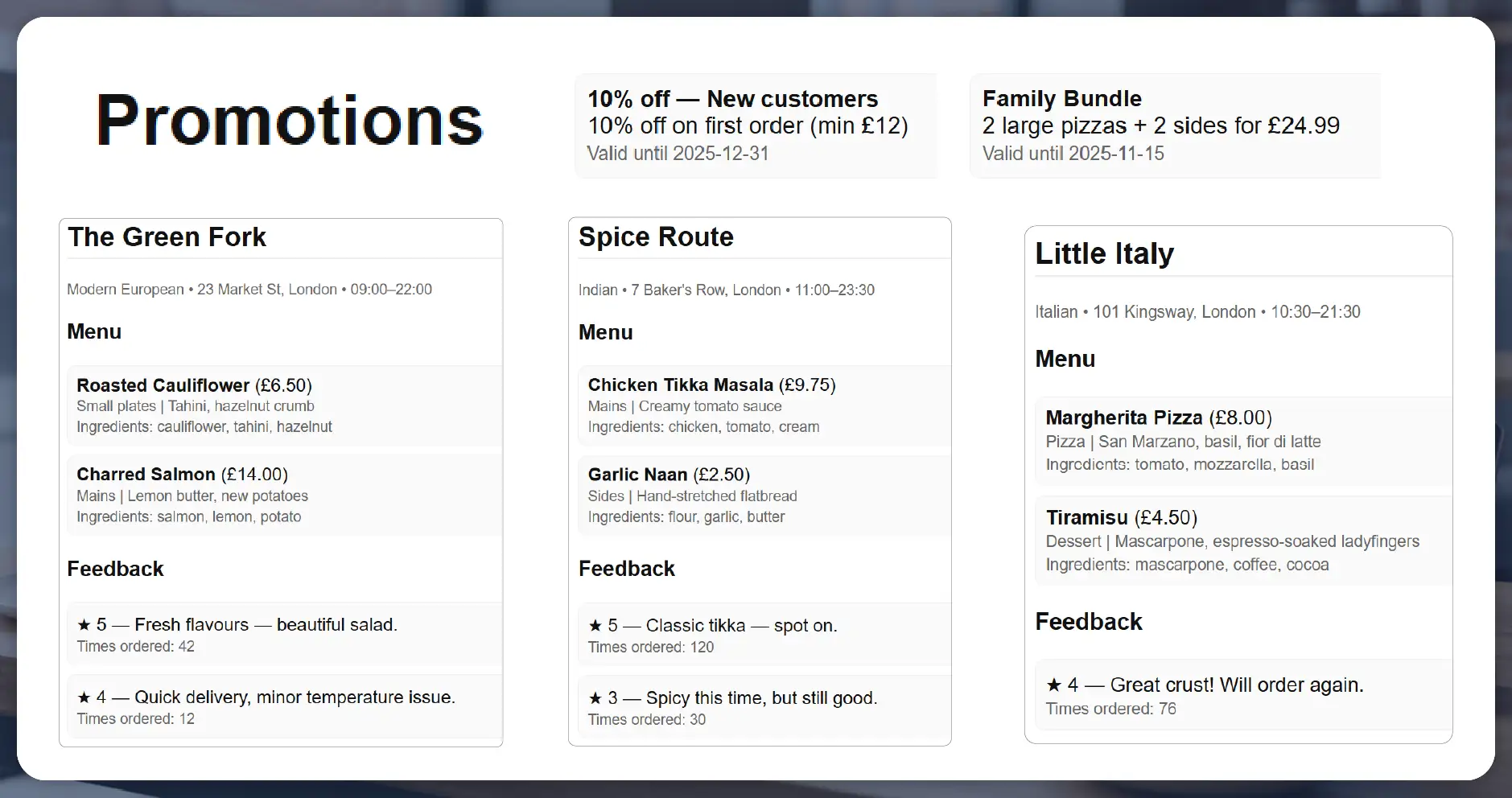
Deliveroo, as one of the leading food delivery platforms in the UK, maintains an extensive repository of restaurant and menu information. This includes:
- Restaurant Details: Name, location, cuisine type, and operational hours.
- Menu Items: Dish names, descriptions, ingredients, categories, and prices.
- Customer Feedback: Ratings, reviews, and order frequencies.
- Promotional Information: Discounts, bundle deals, and seasonal offers.
Collecting this data systematically allows stakeholders to access granular insights that are otherwise hidden within the platform.
Methods of Food Data Extraction
- Automated Web Scraping: Web scraping involves using scripts or specialized tools to collect data directly from web pages. Automated scraping ensures speed, consistency, and large-scale data extraction. Platforms like Deliveroo often have structured HTML elements that make scraping more efficient.
- API Integration: Some platforms provide APIs for authorized data access. The need to Extract Customer Review & Rating Data from Deliveroo UK becomes seamless when APIs are used, allowing direct extraction of structured data without parsing HTML manually.
- Data Cleaning and Validation: Raw data extracted from websites is rarely ready for analysis. Cleaning involves removing duplicates, correcting inconsistencies, and standardizing formats. Validation ensures that the data is accurate and reliable for making business decisions.
- Data Storage Solutions: Data from Deliveroo can be stored in databases, data warehouses, or cloud storage, depending on the scale and frequency of extraction. This makes it easier to perform queries, generate reports, and integrate with analytics tools.
Key Insights from Deliveroo Data
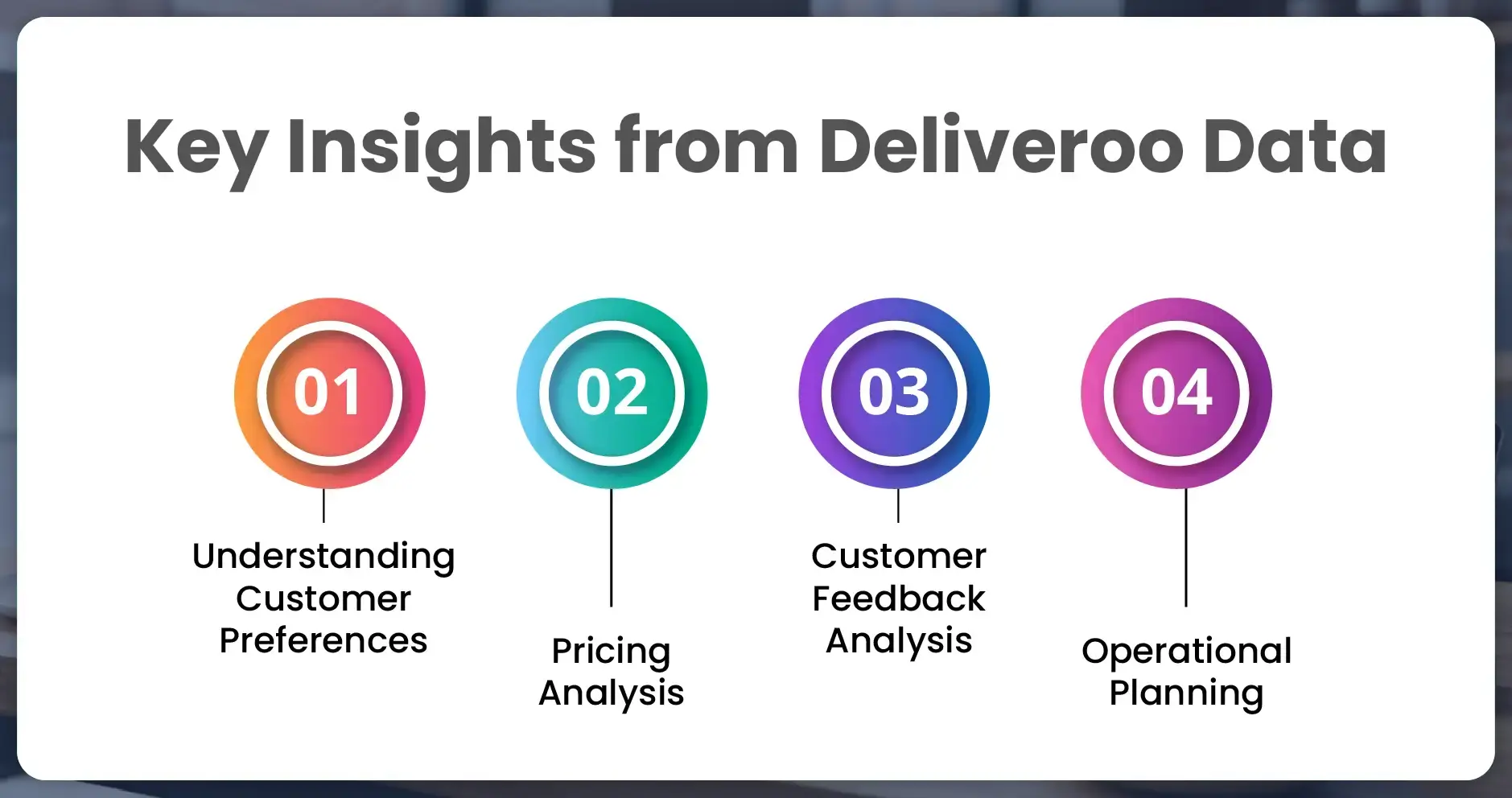
- Understanding Customer Preferences: By analyzing order patterns and menu popularity, businesses can determine which dishes are favored by consumers. Insights into dietary preferences, cuisine trends, and seasonal favorites help in creating targeted menus and promotions.
- Pricing Analysis: Scrape Restaurant Menus Data From Deliveroo UK to track price variations and compare them against competitors. Identifying pricing trends helps restaurants optimize their menu pricing strategies and maintain competitive advantage.
- Customer Feedback Analysis: Customer reviews offer qualitative insights into satisfaction, service quality, and food presentation. By systematically collecting and analyzing reviews, restaurants can improve their offerings and enhance overall customer experience.
- Operational Planning: Data on order volumes, peak hours, and popular dishes can help restaurants plan staffing, inventory, and delivery logistics. This not only improves efficiency but also reduces waste and operational costs.
Tools and Technologies for Food Data Scraping
Successful food data extraction requires robust tools and technologies. These include:
- Web Crawlers: Tools that automatically navigate websites to collect relevant information.
- Data Parsing Libraries: Software modules for processing HTML, JSON, or XML data.
- APIs: For structured and authorized access to platform data.
- Database Management Systems: To store, retrieve, and manage large volumes of data efficiently.
Businesses can also leverage tools to Extract Food & Restaurant Data from Deliveroo UK through specialized services that combine scraping, cleaning, and analysis into a single solution.
Applications of Deliveroo Food Data
- Menu Optimization - Restaurants can use collected data to identify high-performing dishes, remove underperforming items, and adjust portion sizes or pricing.
- Marketing Campaigns - Insights from data allow businesses to design targeted campaigns, offer personalized promotions, and engage with customers more effectively.
- Competitive Analysis - Tracking competitor menus, pricing, and promotions ensures that restaurants remain competitive in the market and respond proactively to trends.
- Expansion Strategy - Restaurants planning to expand to new locations can analyze Deliveroo data to understand local demand, preferred cuisines, and pricing expectations.
- Research and Development - Food companies can leverage data to innovate new dishes, test flavor combinations, and develop seasonal or promotional items that resonate with consumers.
Challenges in Food Data Scraping
Despite its benefits, food data scraping comes with several challenges:
- Data Privacy and Compliance: Ensuring adherence to privacy laws and platform policies is crucial.
- Data Consistency: Menus, prices, and reviews may change frequently, requiring continuous updates.
- Technical Barriers: Websites may use anti-scraping mechanisms, dynamic content, or CAPTCHAs.
- Data Volume: Large datasets require robust storage and processing infrastructure.
- Accuracy and Reliability: Ensuring that extracted data is error-free and representative of the market.
Professional Services for Food Data Collection
For many businesses, setting up in-house scraping and data extraction systems can be time-consuming, technically challenging, and resource-intensive. Professional services specializing in food data collection provide a streamlined solution, offering end-to-end capabilities from extraction to delivery of ready-to-use datasets.
These services enable businesses to access a Deliveroo Food Dataset from UK that covers extensive restaurant information, menu items, prices, and customer reviews. With a Deliveroo Food Delivery Scraping API, companies can integrate real-time data into their existing systems efficiently. Businesses can also rely on Deliveroo Food Delivery App Data Scraping Services to collect information directly from mobile platforms, ensuring no important updates on menus or promotions are missed.
In addition, comprehensive Food Delivery Data Scraping Services handle the extraction, cleaning, and structuring of large volumes of data. Restaurants and analysts can benefit from Restaurant Menu Data Scraping, which provides detailed insights into dishes, categories, and pricing. For scalable and automated solutions, Food Delivery Scraping API Services allow continuous data collection without manual intervention, providing a steady flow of updated insights.
These professional services are especially valuable for organizations that need to Extract Food & Restaurant Data from Deliveroo UK on a recurring basis, ensuring they stay ahead in the highly competitive food delivery market. Leveraging such services minimizes technical hurdles, reduces errors, and delivers actionable data that can drive decision-making, marketing strategies, and operational improvements.
Benefits of Leveraging Food Data
- Enhanced Decision-Making: Access to comprehensive data ensures informed strategic decisions.
- Market Competitiveness: Continuous monitoring of menus and prices helps maintain competitive positioning.
- Consumer Insights: Understanding preferences allows for tailored offerings and improved customer satisfaction.
- Operational Efficiency: Data-driven planning optimizes staffing, inventory, and logistics.
- Revenue Growth: Targeted promotions, optimized pricing, and new product development lead to increased sales.
Case Study: Using Deliveroo Data to Drive Success
Consider a restaurant chain looking to expand in London. By leveraging Deliveroo data, they could:
- Identify the most popular dishes across different boroughs.
- Analyze price points and adjust their menu offerings accordingly.
- Track customer reviews to understand expectations and quality gaps.
- Optimize delivery schedules and inventory based on order patterns.
This data-driven approach resulted in increased customer satisfaction, higher repeat orders, and measurable revenue growth.
Get started today and unlock powerful insights from Deliveroo’s food database to drive smarter business decisions!
Ethical and Legal Considerations
While data scraping is powerful, businesses must remain compliant with legal and ethical standards:
- Respect platform terms of service.
- Avoid scraping personal information without consent.
- Ensure secure storage and responsible use of data.
- Use data solely for business intelligence and research purposes.
By following these guidelines, businesses can harness the power of Deliveroo data responsibly and sustainably.
Integrating Deliveroo Data with Business Analytics
Collected data becomes more valuable when integrated with analytics platforms:
- Business Intelligence Tools: Use BI dashboards to visualize trends, sales performance, and menu popularity.
- Predictive Analytics: Forecast demand, identify emerging trends, and plan promotions.
- Customer Segmentation: Analyze purchasing behavior to target specific demographics.
- Revenue Optimization: Adjust pricing and promotions based on historical and real-time data.
Such integration transforms raw data into actionable insights, driving better business outcomes.
Future of Food Data in the UK
With the growing adoption of food delivery platforms, the demand for structured food data will continue to rise. Emerging technologies like AI and machine learning will further enhance the ability to analyze consumer behavior, predict trends, and optimize restaurant operations. Businesses that adopt data-driven strategies will be better positioned to thrive in this competitive landscape.
By implementing Restaurant Data Intelligence Services, restaurants and food delivery companies can continuously monitor market trends, optimize operations, and deliver superior customer experiences. Using a Food Price Dashboard to track pricing fluctuations in real-time provides businesses with a significant strategic advantage.
Moreover, access to comprehensive Food Delivery Datasets allows for in-depth analysis, enabling better menu planning, competitive benchmarking, and operational efficiency.
How Food Data Scrape Can Help You?
- Comprehensive Data Coverage - We extract detailed information from menus, prices, restaurant details, and customer reviews, ensuring you get a complete picture of the food delivery landscape.
- Accurate and Reliable Results - Our advanced scraping algorithms and validation processes guarantee high-quality, error-free data that you can trust for analysis and decision-making.
- Real-Time Updates - We provide continuous data collection with real-time updates to keep you informed about the latest menu changes, pricing adjustments, and customer feedback trends.
- Customizable Solutions - Our services can be tailored to meet your specific needs, whether it’s targeting certain cuisines, locations, or types of restaurants for more focused insights.
- Scalable and Efficient - Designed for both small and large-scale requirements, our scraping system handles vast volumes of data quickly and efficiently, saving time and operational effort.
Conclusion
The digital transformation of the food delivery sector has made data one of the most valuable assets. Food delivery Intelligence services help restaurants, analysts, and businesses leverage comprehensive datasets to optimize operations, enhance customer satisfaction, and stay competitive. By combining robust data collection techniques with professional services, stakeholders can unlock insights that drive growth and innovation.
A strategic approach to data collection, analysis, and application ensures that businesses not only survive but thrive in the competitive food delivery landscape. Utilizing structured datasets through reliable scraping services, maintaining compliance with legal standards, and integrating insights into daily operations are critical steps toward achieving sustainable success in the UK food delivery market.
If you are seeking for a reliable data scraping services, Food Data Scrape is at your service. We hold prominence in Food Data Aggregator and Mobile Restaurant App Scraping with impeccable data analysis for strategic decision-making.






















































































